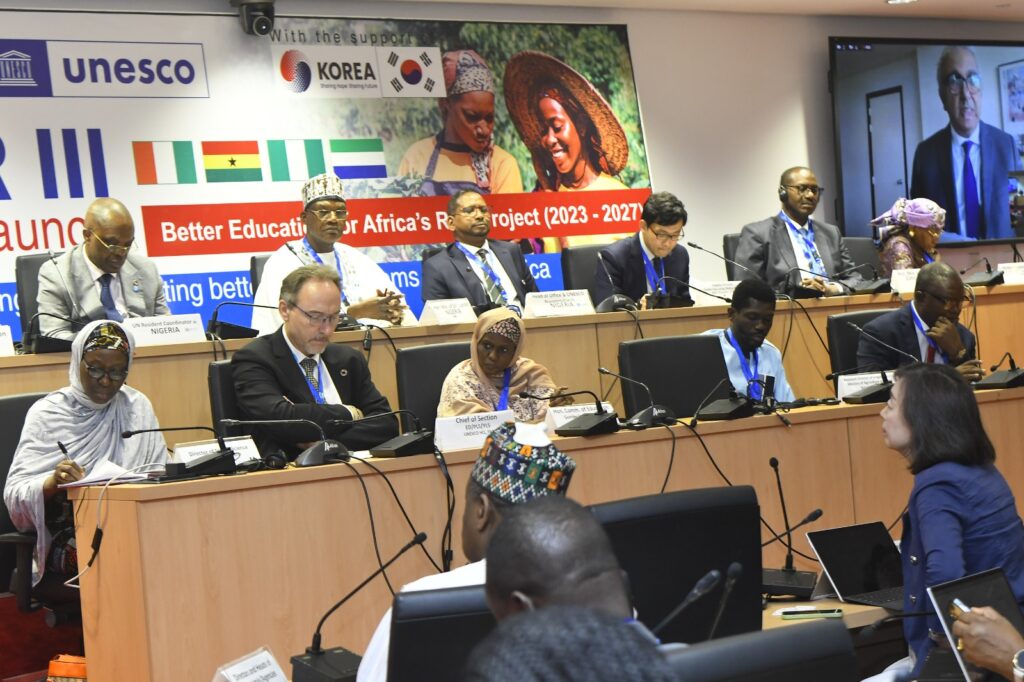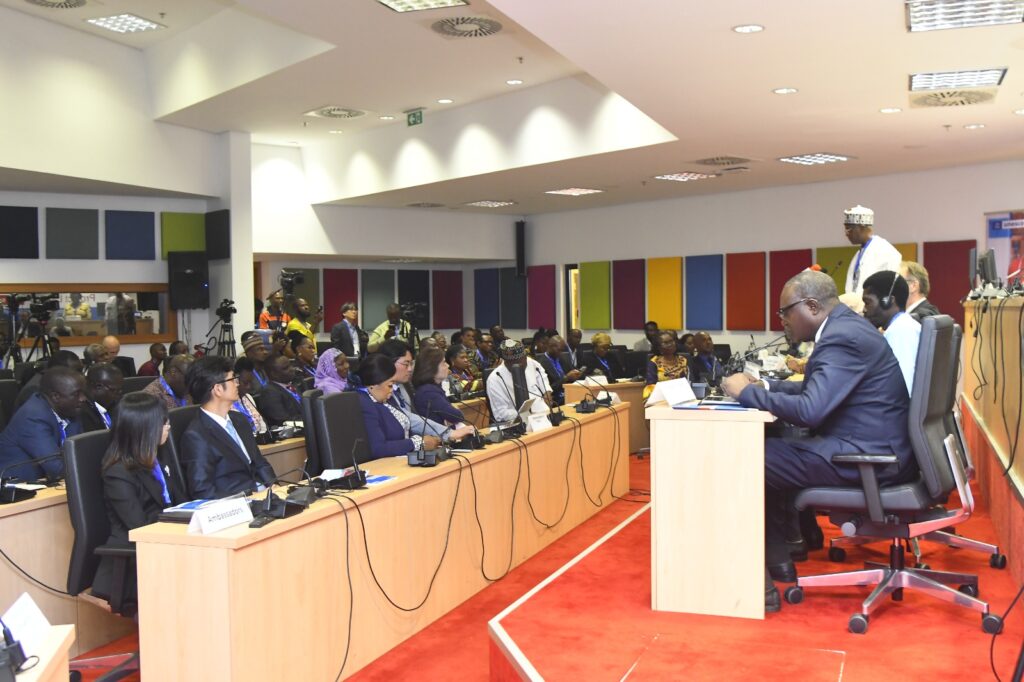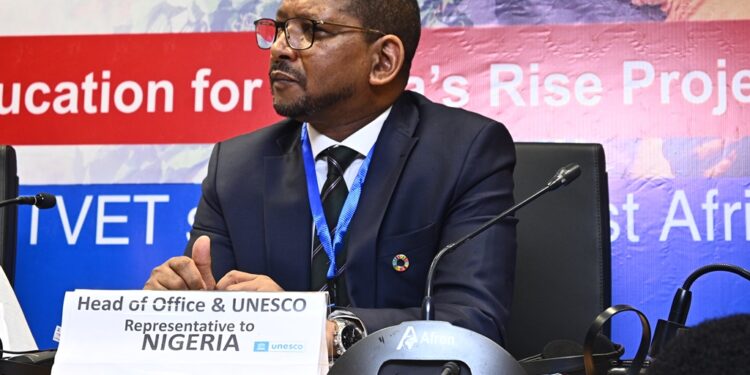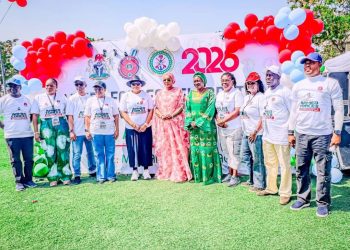By Mnena Iyorkegh, Abuja
The United Nations Educational, Scientific and Cultural Organization (UNESCO) and the Korean government has launched a special programme known as Better Education for Africa’s Rise (BEAR III).
The aim is to give young people in West Africa a better chance of accessing descent employment and capacity building.
Speaking at the project launch in Abuja, Nigeria, the UN Resident Coordinator, Dr Walter Mulombo; who is also the World Health Organization (WHO) Representative In Nigeria, said education is the suitable tool to attaining sustainable development.The joint initiative aims to strengthen Technical and Vocational Education and Training (TVET) system in the benefiting countries.This is in line with the desire of addressing unemployment gaps as governments across the globe face scarcity of labor in several economic domains due to aging populations.

These growing populations are predominantly young people whose redundancy poses greater risk to the society. It therefore becomes important to promote multi-dimensional response to meaningfully engage young people by exposing them to relevant skills that will result in decent jobs and economic growth.Inclusive GrowthThe Head of Office, UNESCO, Mr Abdourahamane Diallo, said promoting inclusive growth and giving chances to most young people in Africa is essential in closing the skill gaps in the informal sector.He adds that: “Closing the skill gaps in the informal sector is essential, according to UNESCO, for promoting inclusive growth and giving chances to most young people in Africa.“UNESCO remains unwavering in its dedication to bridging education with the quickly changing workforce by advancing life and career skills. We aim to enable people to prosper in the 21st-century economy by offering opportunities for skilling, upskilling, and reskilling that are specific to Africa’s dynamic labor market.

According to Sierra Leone’s Minister of Technical & Higher Education, Dr Haja Ramatulai Wurie, the success of the BEAR project is paramount to achieving the SDGs.”In Sierra Leone the BEAR project pays particularly emphasis on supporting approach on which stands as the corner stones of our economic and flagship programme of our nation.
With agriculture counting for 57% of our GDP and serving at the primary livelihood for 65% of households, the success of this strategy is paramount to our national development agenda.“The BEAR project in Sierra Leone is aimed to enhance productive, promote sustainability and create opportunities for global livelihood. It is imperative to recognize the digital role of our youthful population in driving social economic progress. So the BEAR project creates the opportunity for us to explore,” he said.
Nigeria’s Minister of Education, Professor Tahir Maman, emphasized the need for all stakeholders to make skills development a priority.
“This program sits very within the frame work of education 2030. Africa has already dedicated this year as the year of education this also sits very well with it. What is actually the tool available for young ones, it is education.
“Education is the most powerful tool for fighting poverty and ending any other problems that can affect progress and inclusiveness. And the area of education that we are talking about is the education that has relevance to the present economy of the country where the young can key into the present economic activities as vast as they are,” he said.
The third phase of the BEAR project will be implemented in four new beneficiary countries in West Africa. They include Nigeria, Ghana, Sierra Leone and Ivory Coast.















